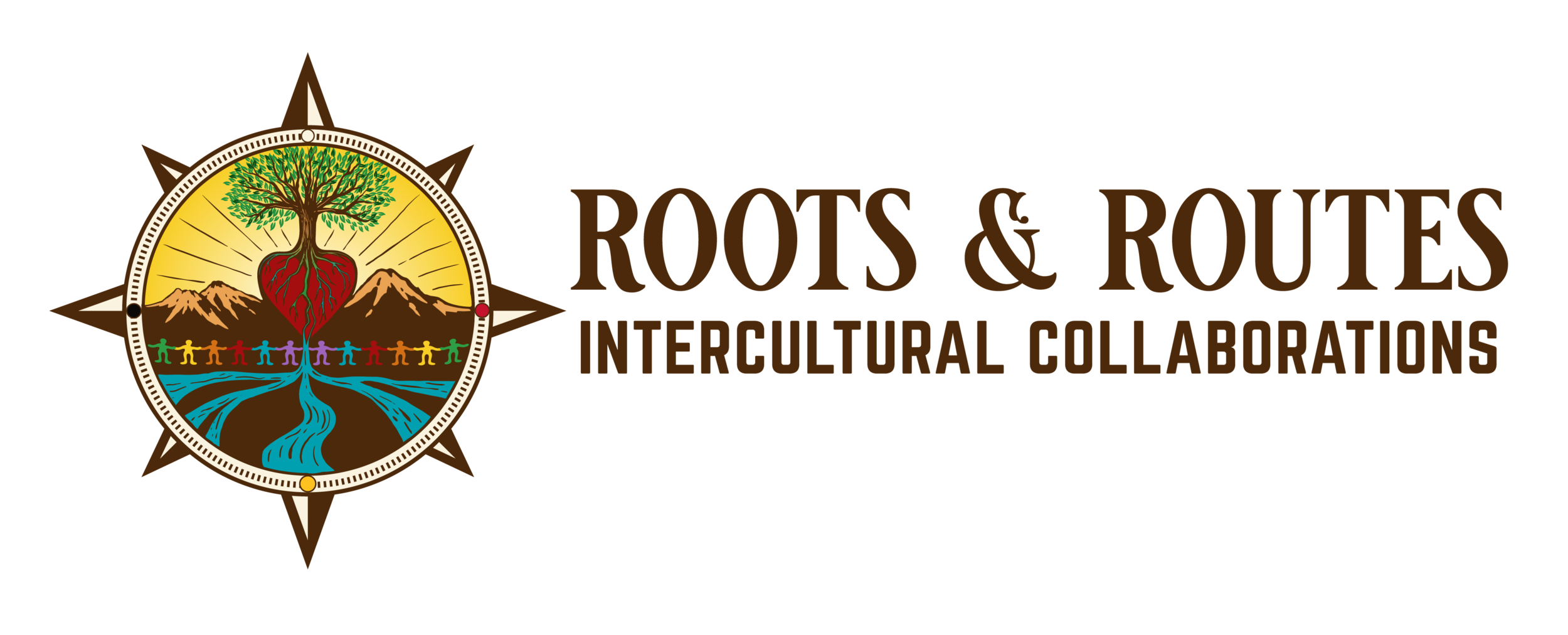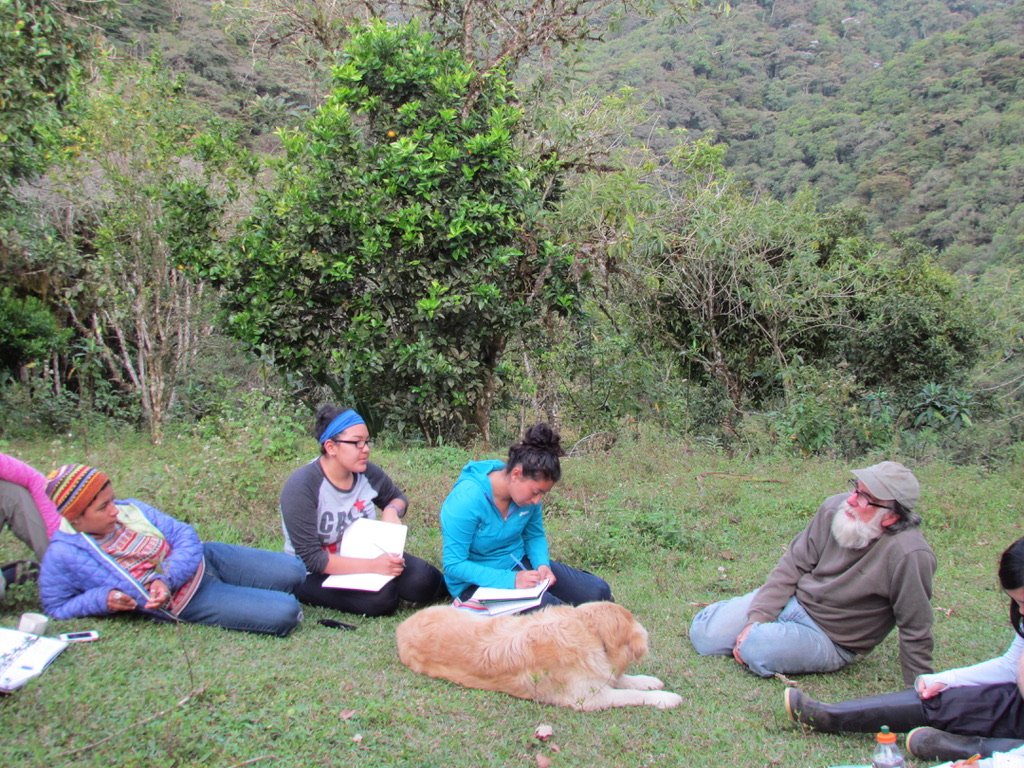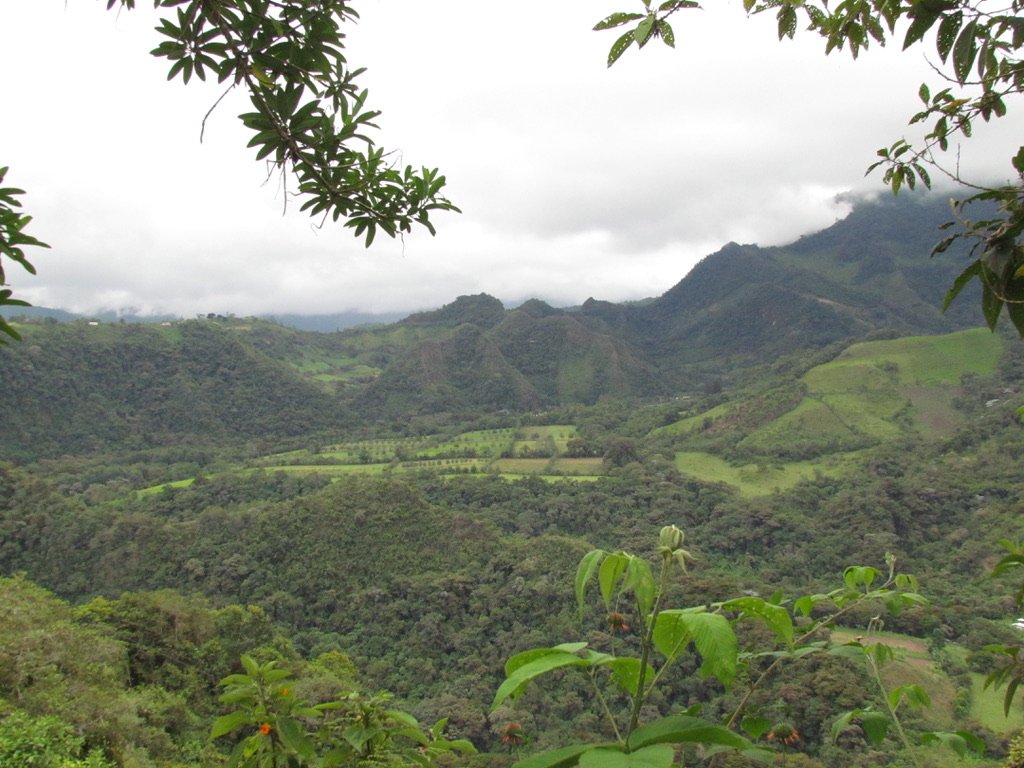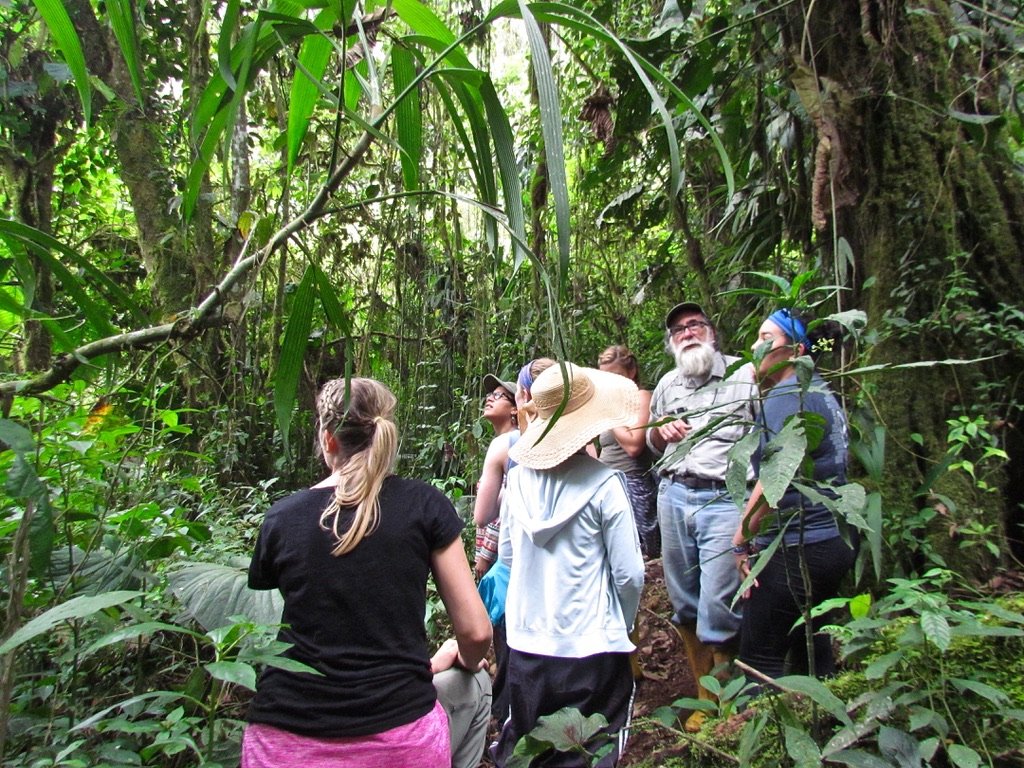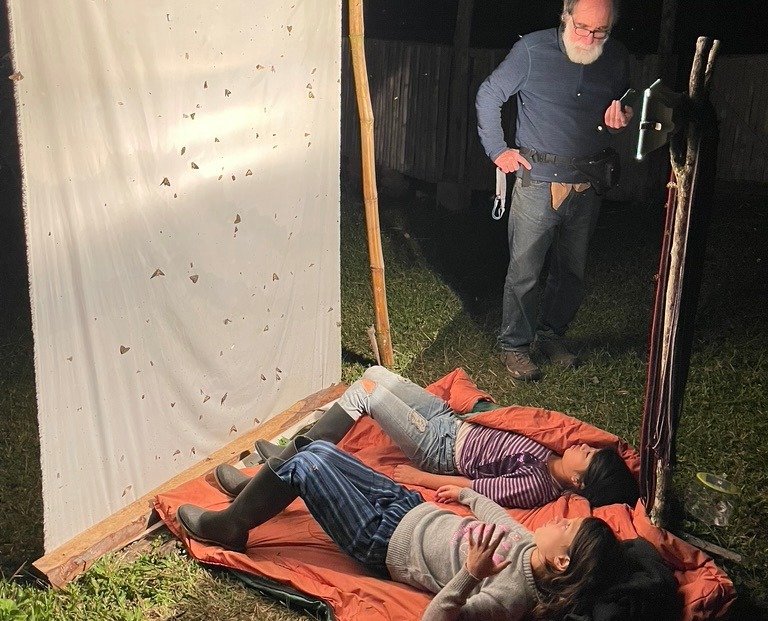“We are all part of a Biological Community”: Why Respecting the Rights of the Tropical Andean Chocó Cloud Forests of Intag is Vital- a Chat with Carlos Zorrilla
“We are all part of a community. We are part of a social community, but we are also part of a biological community. So if you have this realization, that you are part of a community and your community is threatened, what are you gonna do? You’re gonna defend it”
Carlos Zorrilla is a farmer, biologist, conservationist, writer, photographer, activist and teacher who has lived in Ecuador for 43 years. Zorrilla is Co-founder and former President of the Ecuadorian organization called DECOIN (Ecological Conservation & Defense of Intag).
Roots & Routes’ Youth Visionary Collective (YVC) had a chance to chat with Carlos on 5th December, 2021. It was intriguing to learn what it means to form part of biological community for which you would put your life on the line and why respecting the rights of the Andean Chocó Cloud Forests of the Intag Region is vital, especially the face of ever-present threats of international and Ecuadorian mining exploitation. Read more about the importance of this in this Guardian article: “Frog back from the dead helps fight plans for mine in Ecuador”. We were so inspired that now we would like to share what we learned with you.
Carlos sparked conversation by posing a question for the youths to answer: "What do you think is the best way to engage youth in the work of protecting human and Nature’s rights and in making a difference in mitigating the climate crisis?"
The answers from the YVC ranged from getting children engaged with the land at a young age, forming collectives and platforms like Roots & Routes where people can connect with like minded youth, and forming environmental activism clubs and holding workshops inviting people with greater experience in such themes.
Students intently take in what Carlos is sharing with them about the importance of defending the cloudforest. Photo by Juli Hazlewood, during a University of California, Davis Summer Abroad course, 2015.
Juli, Roots & Routes IC’s Executive Director, has been friends with Carlos—including connecting student groups to Intag to experience the magic of the place and people themselves—for over a decade. Familiar with the many roads that brought him to his farm called “La Florida”, located in Santa Rosa, she asked Carlos to share with us more about his roots. “What Carlos, brought you to Intag, and to do the work that you are doing today?” He laughed and responded, “How many days do you have?”
Zorrilla was born in Cuba to Cuban parents, but later on, during the revolution when Fidel Castro came to power, his family migrated to the USA. He lived in California from 1962 into the 70s, and then went to Colorado in 1974. Tired of the material life in the US, which he feels creates another layer of separation from the Earth, he began on a journey for a place to call home. He travelled to a number of places, including India, Northern Africa, Tunisia, Sicily, Italy, Spain and even Portugal.
From Portugal, he took a two-week trip across the Atlantic to Rio de Janeiro. Arriving at 2:00 am with no set plan, he jumped on another boat up the Atowayo river, arriving to Belém, the mouth of the Amazon, where he took a third boat to Manaus. There he boarded a cargo plane to Bogotá, then began his Andes adventure all the way to Southern Chile, Patagonia. Although he went to many countries, he fell in love with the cloud forests of Intag, Ecuador, went back to the U.S. to sell all he had, and came back and bought “La Florida.” See, we told you his journey home to Intag was interesting!
What was it that was so special about this place? What exactly is a cloud forest? And what’s the difference between a cloud forest and a rainforest?
A cloud forest is also known as a montane rainforest, meaning transitional elevations between lowland rainforests and highland mountains. They encompass a tropical or subtropical forested region where there is a persistent, frequent or seasonal low-level cloud cover.
The cloud forest of the Intag Region forms the transitional altitudes between the lowland Chocó Rainforest and the western flank of the high Andean Mountains. It's the space where the clouds cling to the trees dripping with epiphyte plants and buzzing with hummingbirds, butterflies, and moths. Photo by Juli Hazlewood.
While only 2.5% of the world’s tropical forests are estimated to be cloud forests, they accommodate a disproportionately large amount of the world’s species. Although Zorrilla has traveled throughout the Amazonian lowlands, one of the most biodiverse places in the world, the Andean Chocó region has more endemic species (organisms especially adapted to that place that can’t be found anywhere else in the world) per area. Simply speaking, the Intag cloud forest is tremendously lush and awe-inspiring, stated Carlos.
Intag is a hotspot not only for biodiversity, but also for a culture united by mining resistance. Since 1995, it has been threatened by diverse mining interests. Yet the communities have taken the frontlines, together with organizations like DECOIN, have been actively fighting to defend nature and water from the grave environmental damage that accompany the mining industry.
Mining should simply NOT take place in one of the most biodiverse places on our planet, and especially if the majority of the people living in a place are clear on their position: Intag should be free of mining! Check out the documentary Under Rich Earth on Youtube to learn more about the resistance against mining in the Intag region.
The communities of Intag keep the region free from mining for 27 years now. From Japan, Canada, Chile, to Ecuador itself, they all seem to have wanted a piece of the mining pie. Intag’s people, however, have been adamant in demonstrating and stranding strong against the negative environmental impacts mass deforestation, extinction of several plant and animal species and contamination of rivers with heavy metals.
Just in case there is any question about how the lntag people really felt against mining and how powerful their resistance is, in 1997, they burned down Mitsubishi’s mining camps, forcing the multinational company to abandon the mining concession. Later they also physically prevented the Chilean mining company, CODELCO, from accessing the concession, day and night—they were victorious in keeping the Intag cloud forest multi-species (human and other-than-human) communities free from mining once more!
“Many people cannot get their head around the idea that all species have a right to exist. Rivers and water bodies have a right not to be polluted and their ecosystems altered. Mountains have a right to exist.”
Carlos teaching youth about the environmental wealth of the Intag region. Photo by Juli Hazlewood.
The fight against mining was far from over for two principal reasons:
1) The Ecuadorian government, in partnership with CODELCO, has formed a mining company that up to this day. This changed the whole character of the struggle against mining since fighting one’s own state is difficult, especially with contradictory laws that a pro-extraction on one hand, and pro-Rights of Nature on the other.
2) The temptation of community members being swayed by outside definitions of wealth as money, and thus prioritizing material good acquisition over the health of the cloud forest and their children’s children. Carlos said that simply focusing on economic wealth puts us all in danger. Instead, environmental wealth—like the richness of the soil without which we would not exist—should be highlighted.
Four Intag communities (with four people as lead plaintiffs) are currently suing the state for both the right to free, prior, and informed consultation and for the Rights of Nature of the community of species around them, who, in Ecuador, are also subjects of rights. Read more about this in this Guardian article: “Frog back from the dead helps fight plans for mine in Ecuador”. Ecuador has the first constitution in the world that recognizes all of Nature as holding the right to live, regenerate, and reproduce. At a constitutional level even rivers have rights, and people hold the human right to clean water.
Human rights are recognized all over the world, and the Rights of Nature movement is slowly gaining traction. Having clean rivers and healthy forests, however, is inextricably tied to issues surrounding climate change.
The main challenge they face is also two-fold: 1) Ecuadorian judges themselves do not understand the Rights of Nature; 2) as Zorrilla stated, "extractive industries exacerbate corruption everywhere in the world, especially in developing countries."
Sensing how exhausting this long struggle must be, an intern asked Carlos what motivates him to go on with the struggle: “What advice would you give to youth who are just starting the fight towards ecological and social justice?” Zorrilla responded that the social and environmental justice work that DECOIN does in Intag is heartbreaking, exhausting, and depressing. Yet, as we are all part of a biological community, he still feels a responsibility to protect the land. Check out what he says in his own words here:
Zorrilla, however, emphasizes that the people of Intag would be in a losing battle if it were not for outside support. Especially when mining is a strategic sector of national governments and backed by military forces, international corporations are relentless. Therefore, raising public support and transforming local and regional struggles to be national and international causes is absolutely imperative.
Carlos shining his light on diversity and sharing the wealth of knowledge with his daughter and her friend. He sets up this sheet and light at night, and attracts the moths, who are species that indicate biodiversity. He has documented many new moths that the world would not otherwise know. Photo by Juli Hazlewood.
Zorrilla concluded by encouraging the interns to get out into nature and experience what it has to offer for themselves. Learn about what you are seeing and how to care for the environment and the biodiversity of this planet. Fall in love with Nature and be willing to fight for who you love and what you do, and most importantly, share your enthusiasm. He encourages us all to start locally in our neighbourhoods, school clubs, and colleges, so that we can all help fight to protect the land, forests, rivers. We can get involved with the communities where we are, joining the struggles for human and Nature’s rights against industries designed to violate them. Such is the case with mining.
Intag libre de mineria! [Intag: Free from Mineria!]
